Chinese Foreign Minister Wang Yi declared that Beijing would respond resolutely to acts of "unilateral bullying" and warned that China would "play to the end" if the US persisted in its pressure. How high have economic tensions reached?
According to SCMP , at the Munich Security Conference in Germany on February 14, Chinese Foreign Minister Wang Yi made strong statements targeting the US after President Donald Trump imposed the first tariffs on Chinese goods.
Wang Yi declared that China would "play to the end" if the US insisted on exerting pressure, even though Beijing did not want a conflict with Washington.
The statement was issued after US President Donald Trump decided to impose a 10% tariff on imports from China in early February. China then retaliated by imposing a 15% tariff on US coal and liquefied natural gas (LNG), and a 10% tariff on crude oil, agricultural equipment, and some imported vehicles.
The shocking rise of China
Over the past few decades, China has risen to become the world's second-largest economy, behind only the United States. China's rise has been powerful, with growth consistently remaining in double digits for many years.
China has become the "world's factory" and has well-developed supply chains. The country's technology is evolving at a rapid pace, with ambitions to surpass the US in innovation.
The rise of China has attracted worldwide attention.
In his first term, Donald Trump initiated a series of actions ranging from trade and currency to technology. The US imposed numerous sanctions, particularly in the technology sector. Huawei, TikTok, and other Chinese technology companies faced intense scrutiny in the US market. The US and many Western countries are diversifying their supply chains to reduce their dependence on China.
China's global economic and political influence has also increased with the Belt and Road Initiative (BRI).
Recently, China's development has truly caused global concern. Just about two weeks after Trump took office (on January 20th), China shook the tech world, causing major US tech corporations to lose trillions of dollars after DeepSeek and Alibaba launched their artificial intelligence (AI) platforms, DeepSeek R1 and Alibaba Qwen.
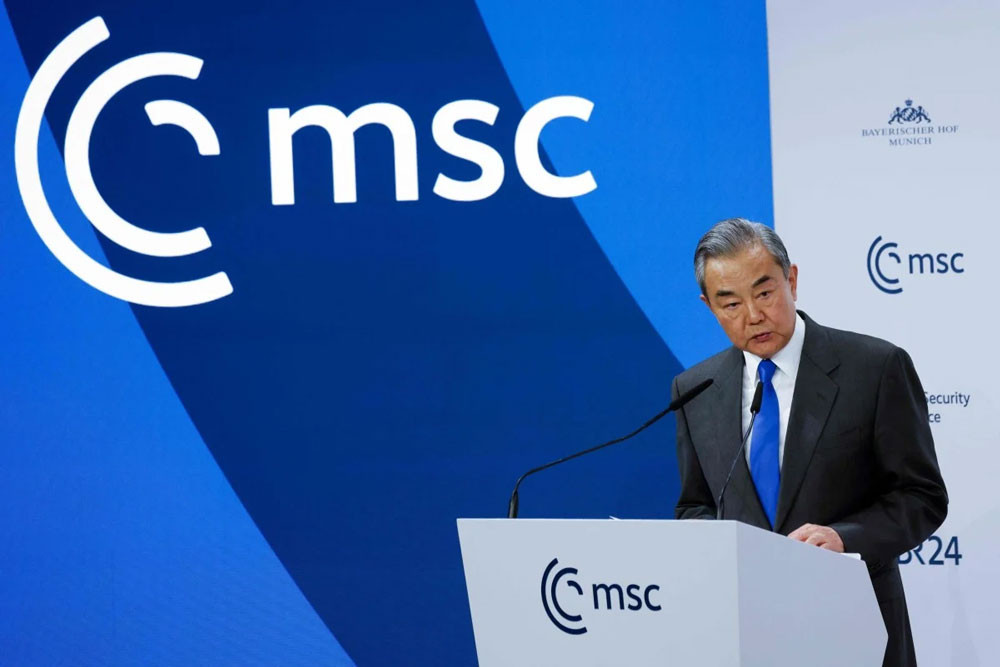
These two platforms are considered a "seismic shift," boasting many advantages over the American platforms that dominated the AI market about two years prior. These include comparable reasoning capabilities, highly flexible open-source code, and extremely low costs—a fraction of what American corporations have invested. The belief that American AI technology is far ahead of China is being shaken more than ever.
Major US technology companies are holding meetings to assess the situation. US President Donald Trump immediately asserted that the unexpected rise of the Chinese artificial intelligence application DeepSeek "should be a wake-up call " for American technology companies.
At the Munich Security Conference in Germany on February 14th, Wang Yi quoted the famous Chinese saying, "The heavens are in drastic change, the virtuous man strives to improve himself without ceasing," and suggested that if it was difficult to translate and understand the meaning of this saying, one could "ask for help" from China's DeepSeek.
Tensions have reached unprecedented levels; is Trump about to face a decisive confrontation?
Previously, during Trump's first term and Joe Biden's presidency, the US repeatedly implemented measures to restrict the sale of advanced technologies to China in order to prevent Chinese companies from developing high-tech chips, including those used in Beijing's military applications.
Beijing argues that such restrictive measures are part of a long-term plan to curb China's technological progress.
Now, tensions seem to be intensifying. And it's quite possible that America under Trump is preparing for a decisive confrontation that will determine who will lead the new world order. Technology is seen as the fiercest battleground.
Over the past week, the Munich Security Conference witnessed some shocking events. These included criticism from US Vice President JD Vance against European allies, a US proposal for Ukraine to supply 50% of its rare earth minerals as repayment for military aid, and news of peace talks between Russia and Ukraine without direct European participation.
On February 15, Keith Kellogg, President Trump's special envoy, made it clear that the U.S. would negotiate with Russia to find a solution to the crisis in Ukraine without European and Ukrainian officials present.
Besides efforts to promote a mineral agreement with Ukraine, the US is also considering increasing its influence in resource-rich and strategically located areas such as the Panama Canal and Greenland.
Earlier, on February 12, Mr. Trump said he had a "long and highly productive" phone call with Russian President Vladimir Putin. During the call, they discussed Ukraine, the Middle East, energy, AI, the strength of the dollar, and other issues.
So what's going on?
The latest moves suggest that Trump is also scaling back commitments in the EU, Ukraine, and the Middle East. The White House is also reconsidering its cooperation with Russia as a strategic partner to balance power in the face of China's rise.
The uncompromising trade policy suggests that the US is attempting to restructure its economy, reducing its dependence on other economies, and promoting self-reliance and dominance in global supply chains.
The Trump administration's efforts to end the conflict in Ukraine would help the U.S. reduce its aid budget and could also yield economic benefits, particularly in crucial minerals like rare earth elements – about 70% of which the U.S. imports from China.
If the Russia-Ukraine conflict ends, it will relieve pressure on Europe and Russia, and prices of goods, fuel, food, etc., could fall sharply. Many supply chains will be restored. Inflation will cool down, opening up room for Washington to intensify the global trade war and move towards a new alliance system to most effectively counter China. Currently, the US considers China a strategic competitor and a security threat, especially in the economic, technological, and global spheres.
The US-China economic war is unfolding in many ways. This competition could last for decades, shaping the world order in the 21st century. It is also highly unpredictable due to changes and differences within the countries themselves (such as the US), among allies, and among rivals.

Source: https://vietnamnet.vn/trung-quoc-se-choi-den-cung-voi-my-cang-thang-kinh-te-da-toi-muc-nao-2371927.html










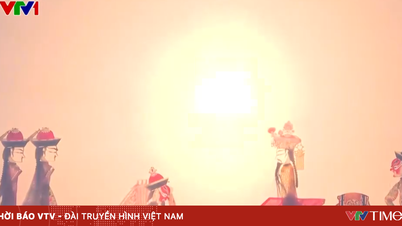

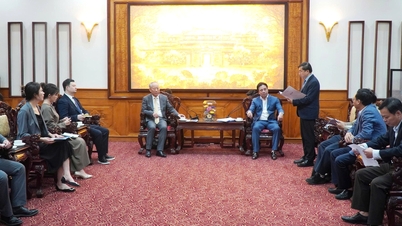




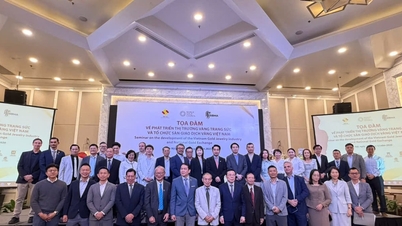
















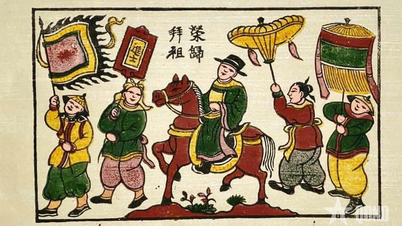







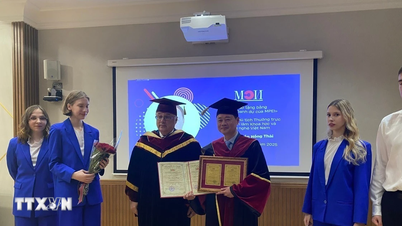




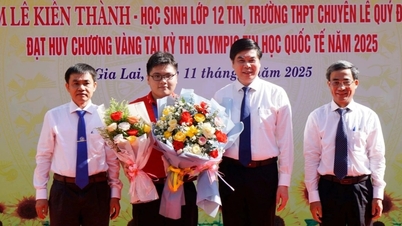

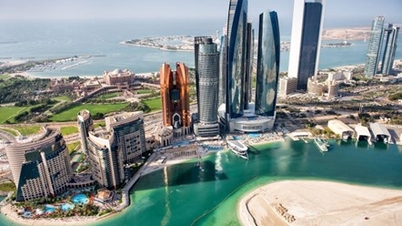




















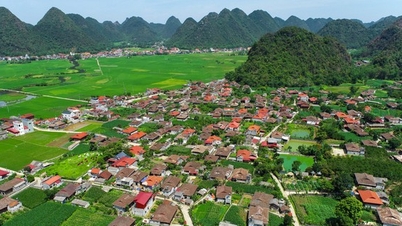

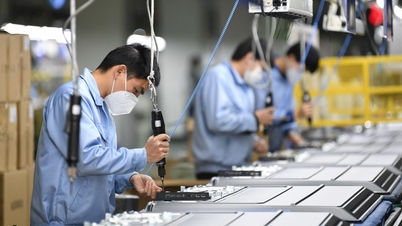



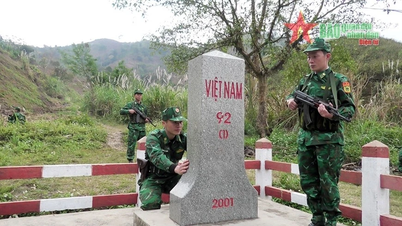






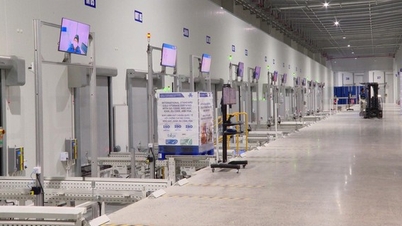















Comment (0)